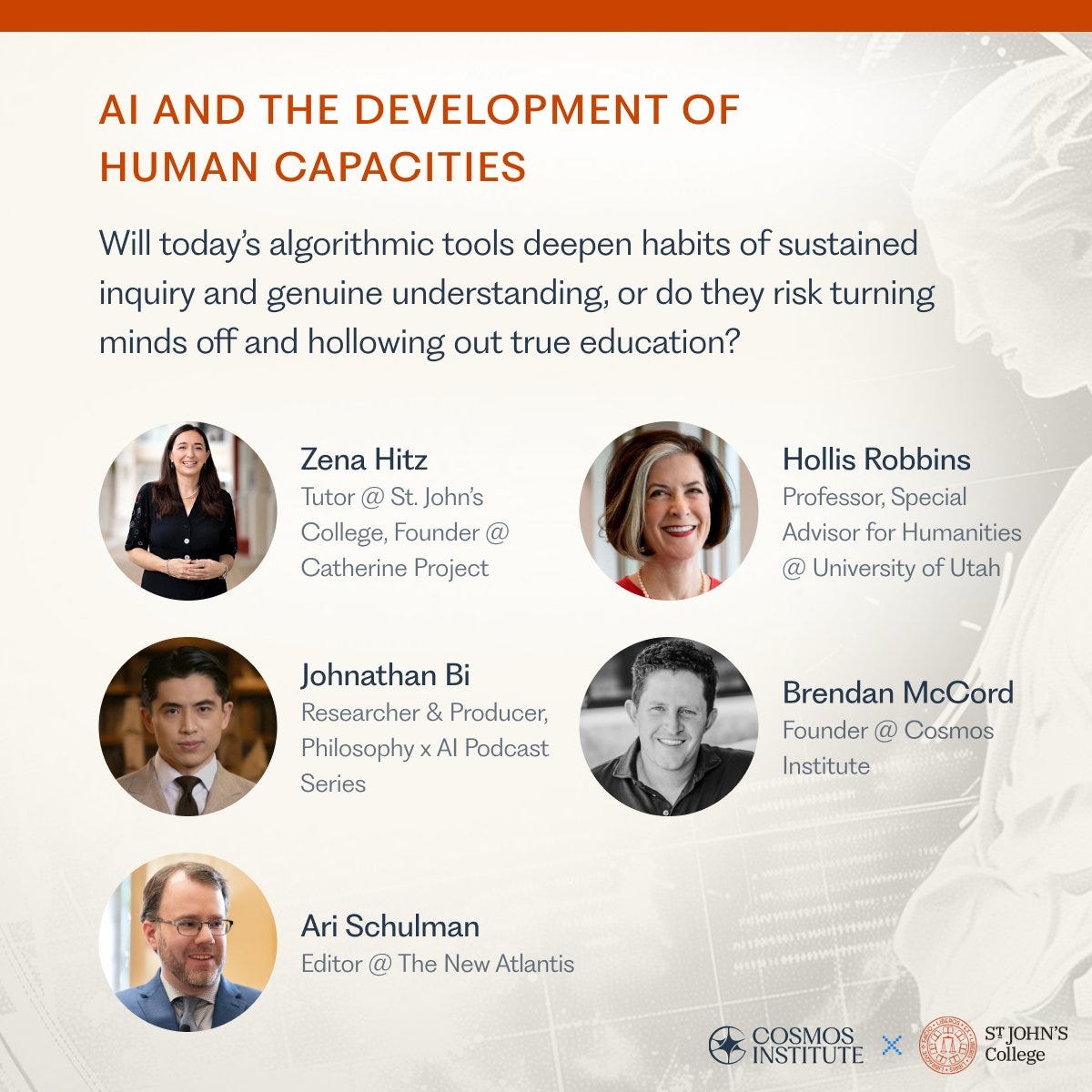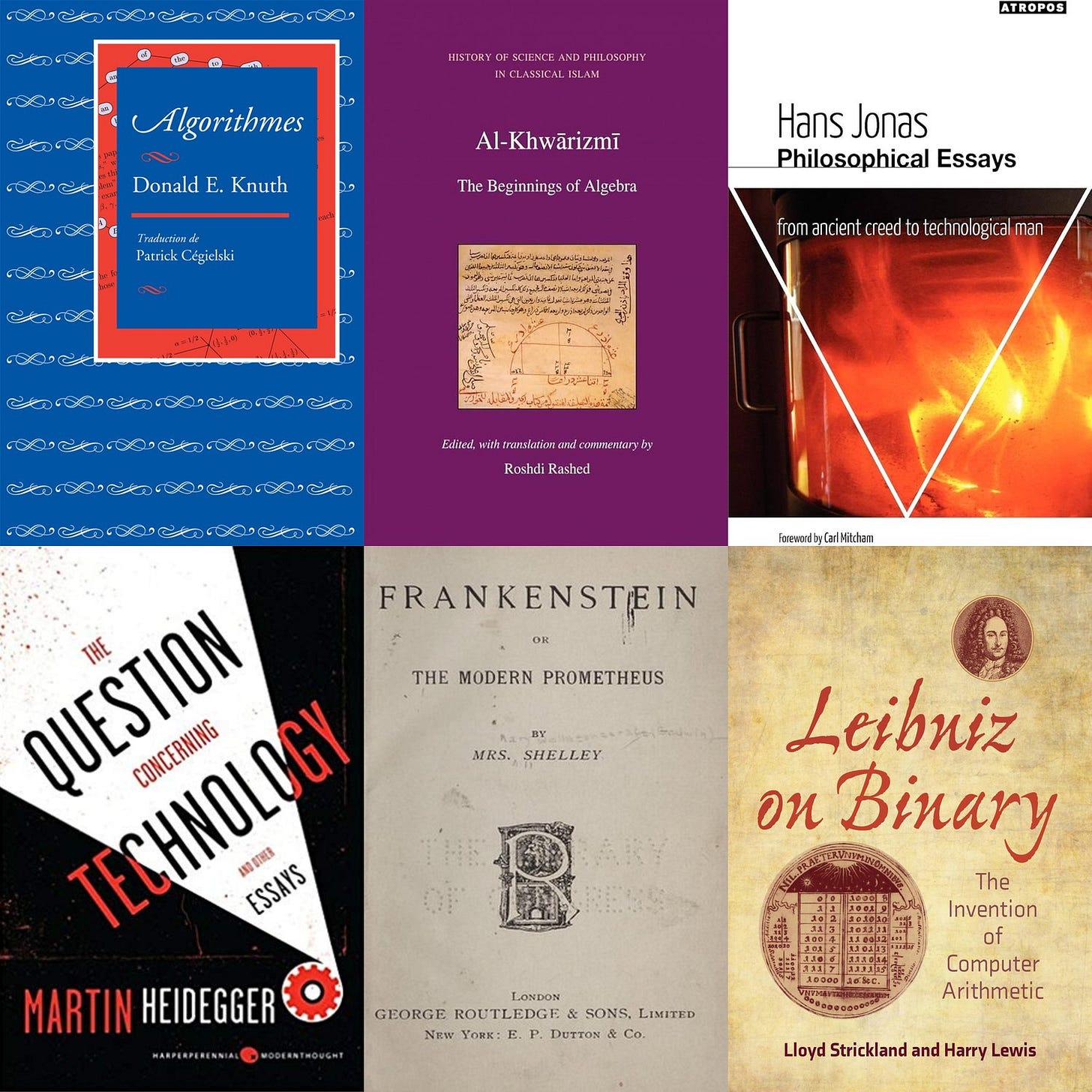Watch a new panel from Cosmos and St John’s College, where thinkers discuss:
What does authorship mean in an era of machine-generated text?
How might new technologies shape education?
What’s at stake for the future of shared intellectual life?
Read below for 5 top takeaways, links for discovering more, and ways to get involved in future philosophy x AI initiatives.
In July, Cosmos Institute and St. John’s College co-hosted a three-day Technology and Computation Symposium, where thinkers across philosophy, education, and AI met to study foundational texts and explore how technology shapes our intellectual and moral lives. This panel was one highlight.
Top 5 panel takeaways
What makes a book “great” if no mind suffered for it? To read a great book involves looking beyond words to ask what the author meant and felt, and to engage with them in silent dialogue. This raises questions in a world where machines can write on demand. Even if AI could imitate style or semantic content, could it produce a truly Great Book without such a mind? Would a Tennysonian poem or fictionalized memoir be as meaningful if it didn’t reflect the author’s experiences?
AI novels might be great in their own way. Sometimes coherence and craft matter more than human authorship; perhaps AI creates something where the internal logic speaks for itself. How much does it matter to know the person behind a text? Maybe it’s genre-dependent: Confessions loses its heart without Augustine’s personal history, but would Frankenstein without Mary Shelley still raise deep questions? Furthermore, the fact a work is AI-generated can raise new and interesting questions itself.
Self-cultivation is critical to a full education—and AI can help this. Used well, AI can help realize Wilhelm von Humboldt’s vision of education—the harmonious self-development of complete and integrated persons. AI tutors already help children tackle complex ideas and broaden access to learning in unprecedented ways. But achieving this means steering around over-reliance and passive use.
Learning with AI can retain its roots in relationships and community. Fears of losing education’s social elements aren’t new, but our strategies must adapt. AI could create echo chambers and a “hall of mirrors” culture that isolates learners—or build learning communities and connect people at scale (for example see work on social tinkering from Cosmos grantee Caitlin Morris, or Zena Hitz’s The Catherine Project). Though, it's also worth asking: is learning inherently social, or just accidentally so?
Go build. The lives of authors are entangled with the Great Books, just as technology cannot be neatly separated from those who build it. Already AI tools show remarkable potential, whether in tailoring learning paths to individual needs, or using rich representational embeddings to uncover deeper connections within great texts. Now is the time to shape it with purpose.
Discover more
Other recent Cosmos seminar materials:
Readings from the Cosmos x St John’s Symposium
Get involved
If you’d like to join a future seminar on philosophy and AI with Cosmos Institute please fill out our expression of interest below:
Applications for our next round of AI x Truth-seeking grants close on August 31st. See the first cohort of winners. And apply for our second cohort below:
Cosmos Institute is the Academy for Philosopher-Builders, with programs, grants, events, and fellowships for those building AI for human flourishing.







